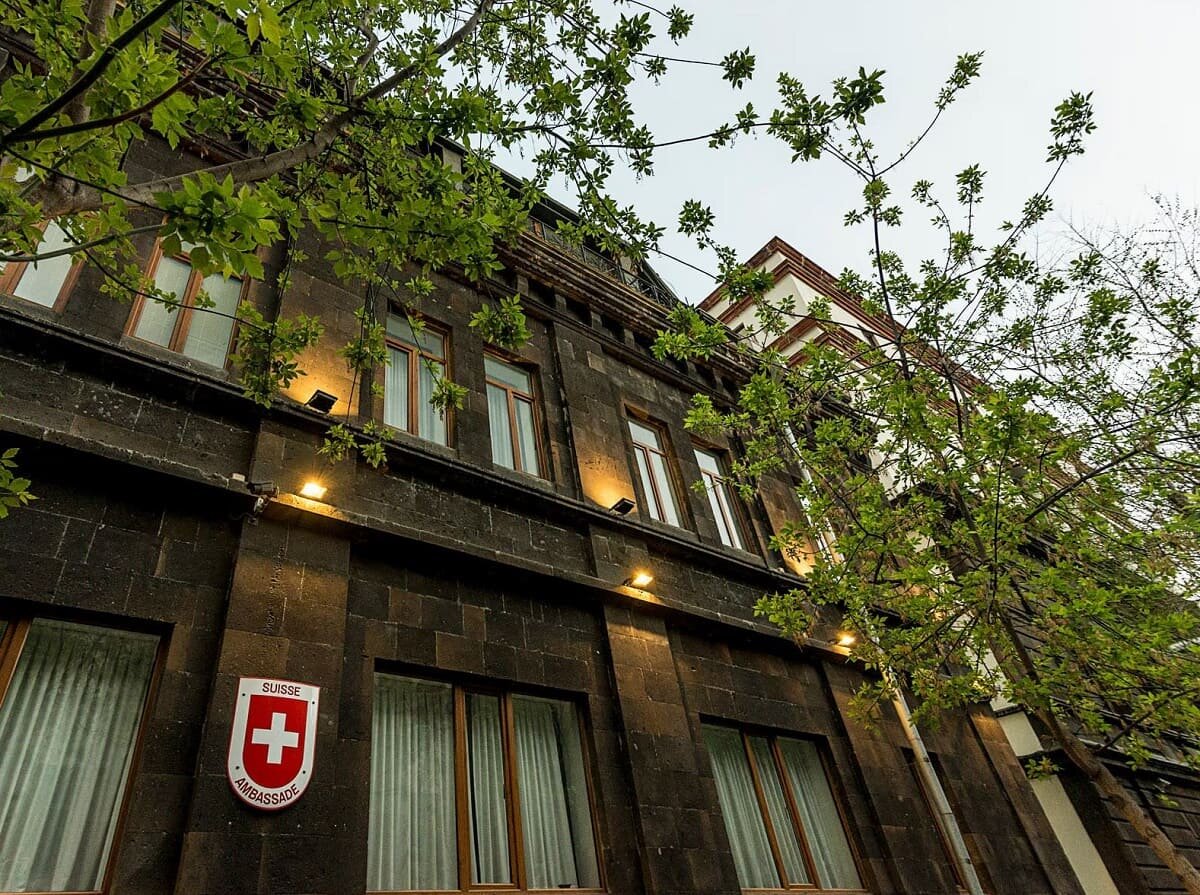Switzerland resumes embassy operations in Tehran

TEHRAN – Switzerland officially announced it is reopening its embassy in Tehran, marking a step in the gradual restoration of diplomatic normalcy after a brief closure triggered by the Israeli regime’s 12-day war on Iran.
“The embassy is again open, having temporarily been closed on June 20 owing to the instability of the situation in the country,” the Swiss foreign ministry announced Sunday, noting that Ambassador Nadine Olivieri Lozano and her small team returned overland via Azerbaijan the previous day.
In the absence of direct U.S.–Iran diplomatic relations, Switzerland has represented Washington’s interests in Tehran since 1980.
“Having now returned to Tehran, Switzerland is once again in a position to fulfil its role as a protecting power for U.S. interests in Iran,” the statement read.
Though consular services such as visa issuance remain suspended for the moment, the embassy will progressively resume its full range of operations after a comprehensive risk analysis carried out in consultation with Iranian authorities and the United States, the statement read.
It also emphasized that “a return to diplomacy without delay is crucial, offering its offices—and Geneva as a venue for negotiations”—for this purpose.
During the 12-day war, the U.S. inserted itself militarily into the conflict alongside the Israeli regime, launching attacks on Iranian soil on June 22.
The Pentagon claimed Northrop B-2 Spirit stealth bombers delivered GBU-57 bunker-buster bombs and Tomahawk cruise missiles against the Fordow, Natanz, and Isfahan nuclear sites—strikes that President Trump hailed as “completely and totally obliterated.”
His claim was later contradicted by Defense Intelligence Agency leaks suggesting the damage was far less extensive.
Backed by U.S. arms transfers and funding, Tel Aviv’s military pressed strikes on Iranian positions, fueled by Washington’s provocative statements.
Parallel to the diplomatic revival, Iran has restored most of its civilian air routes after a 20-day suspension.
Airports including Mehrabad and Imam Khomeini in Tehran—as well as regional hubs in the north, south, east, and west—now handle domestic and international flights daily between 05:00 and 18:00 local time.
Runways at Tabriz and Isfahan, damaged during Israeli strikes, have undergone urgent repairs.
In addition to martyring over 935 Iranians—including 38 children and 102 women—and injuring thousands more, the Israeli regime struck civilian infrastructure, including airports and hospitals.
The Western bloc, which often proclaims a commitment to human rights, responded with silence or even support for Tel Aviv’s aggression.
